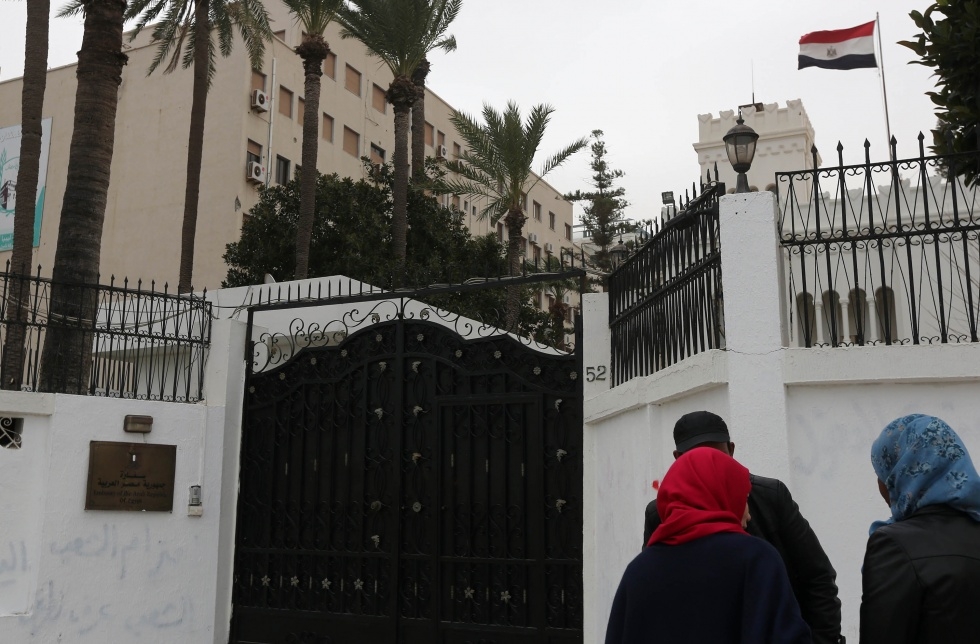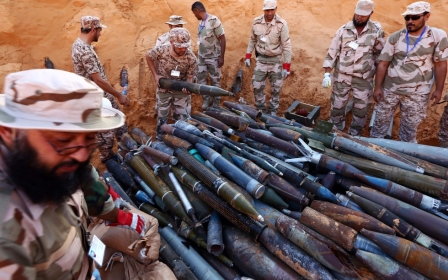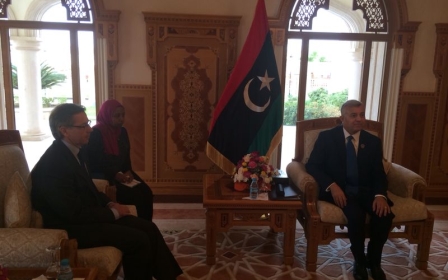Car bombs detonate outside the UAE and Egyptian embassies in Libya's Tripoli

Car bombs detonated early on Thursday morning outside the Egyptian and UAE embassies in the Libyan capital Tripoli, according to eyewitnesses and local reports.
The blasts, which took place an hour apart, reportedly left only material damage to the embassies.
Two guards posted outside the empty Egyptian embassy compound were wounded in the first blast, Libya's LANA news agency reported.
Three more posted outside the empty UAE compound, none of them Emirati nationals, were wounded in the second, a senior official told AFP in Abu Dhabi.
The diplomatic staff of both the UAE and Egypt are currently out of the country.
Libyan capital Tripoli has been under the control of the Misratan-led alliance of Libya Dawn since August, after they routed government-affiliated forces from the city's international airport.
The UAE and Egypt have lent support to forces based in the east attempting to reclaim control of Tripoli and have even been accused of bombing Libya Dawn militias in the capital by unnamed American officials.
Journalists in Libya speculated Thursday's bombings could be related to UAE and Egyptian involvement in the Libyan civil conflict.
Both Abu Dhabi and Cairo have denied bombing Libya Dawn militias.
Thursday’s car bombs in Tripoli came a day after a series of blasts killed at least seven people in two separate attacks in the eastern towns of Tobruk and Labraq.
Libya has been dogged by political instability since the 2011 ouster and later killing of long-ruling leader Muammar Gaddafi.
Rival tribes, cities and militias are vying for control of the troubled North African nation, which possesses Africa’s largest oil reserves.
There are two competing parliaments as well.
One in Tobruk, internationally recognised and elected in June, which was the subject of a Supreme Court ruling last week that said the body and the government it appointed is “unconstitutional”.
In Tripoli the defunct General National Congress (GNC) reconvened in August after Libya Dawn took over the capital and appointed a national “salvation” government.
Analysts told MEE earlier this week “no one in Libya has a clear sense” about which parliament is legitimate, in light of the Supreme Court ruling regarding the Tobruk based House of Representatives.
New MEE newsletter: Jerusalem Dispatch
Sign up to get the latest insights and analysis on Israel-Palestine, alongside Turkey Unpacked and other MEE newsletters
Middle East Eye delivers independent and unrivalled coverage and analysis of the Middle East, North Africa and beyond. To learn more about republishing this content and the associated fees, please fill out this form. More about MEE can be found here.




